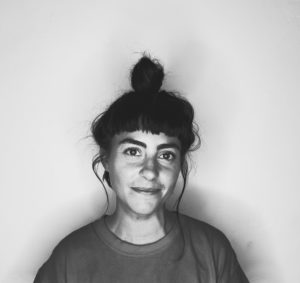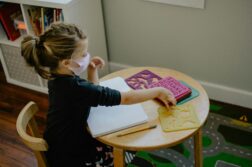
She often screams at you when she’s upset. She finds the words that hurt you the most: painful jabs at your family, your education, or your worth. She tells you that she hates you.
Once she calms down, she offers explanations in lieu of apologies. She’s depressed. Work is stressing her out. Her family life growing up was degrading and abusive. This is how she excuses her tendency to resort to anger with you, her actions intended to destroy you, and her enjoyment of making you feel small. You accept it, even though you’re scared. You continue loving her and enduring her problematic behavior.
You met when you were both in high school. She was the first girl you ever dated. The first person you ever slept with. The first person you said “I love you” to. She was also the only person you loved who hit you. The only person who screamed even louder at you after you began to cry. The only person who has locked you out of apartments, dorm rooms, and cars. The only person you have felt utterly lost with but hopelessly drawn to. Her pain was ingrained in you from the beginning; you wanted to be her savior. You had a ten-year relationship with someone who was incapable of understanding the love that you gave and unable to give you the love that you deserved. She physically abused you only a handful of times, but emotionally and psychologically abused you throughout the decade span of your “love.”
Because you met her at such a young age, you had no previous context for what love, especially queer love, was all about. You assumed her outbursts were just part of the package of dating another woman. Society loves to portray women as more emotional than men, so you accepted her cruel emotions. It was normal to feel so happy with someone who simultaneously made you feel so miserable.
But you started having a conversation with yourself every time she showed her temper. “Is this how I would treat the person I love?” “Is this something I would do to another human being?” The way she spoke to you, the way she let her anger go unchecked and unaccounted for—both worried you. But you didn’t walk away. When she pounded her fists on your chest one night, you forgave her because she was drunk and physically weaker than you. When she molested you and hissed cruel words into your ear while tears were flowing down your face, you hid in the bathroom all night but acted as if nothing had happened the next morning. You still didn’t walk away. It wasn’t until she spent the night with another woman instead of being by your side while you put your father in hospice that you finally left her.
The few people you confide in about the violence all ask you: “What if my partner had acted that way with me? Wouldn’t you tell me to run, not walk, away?” But these were mostly straight women, and you found it less inexcusable for a woman to hit a woman than for a man to do so.
In her memoir about her abusive relationship with a former girlfriend titled In the Dream House, Carmen Maria Machado mentions Annette Green, who shot and killed her abusive female partner in 1989, leaving the jurors and judge trying her case bewildered. She was “one of the first queer people to use the term ‘battered woman syndrome’ to justify her crime” when the perpetrator was another woman. Green was convicted of second-degree murder, but her attorney argued that if she had been white and straight, she would have been acquitted.
It is not only in courthouses that LGBT violence is silenced or not taken seriously. There is a quiet prevalence of muting the voices of the abused in our own community. It is whimsical to claim that LGBT people have escaped the abuse that’s prevalent in straight society and found a magical utopia free of partner abuse and violence. That utopia does not exist.
It might seem like a discredit to the LGBT community to admit that we are not immune from the brutality of intimate partner violence. There may be a fear of admitting our abuse to authorities, of not being accepted into battered women’s shelters, or of not being believed by our friends and peers. For women of color and for trans women, these fears are all the more real, as these groups are more likely to be subjected both to intimate partner violence and to police brutality. It is thus understandably difficult for LGBT women to come forward with their abuse. Who will believe us? Who will understand us? Who will act?
Although women in abusive intimate relationships with other women have historically been left out of the popular construction of “battered women”—a term more often applied to straight cisgender couples—there is now an abundance of personal narratives documenting abuse within our community. The truth is that cultural heterosexism and pervasive homophobia lead LGBT people to experience abuse just as much as, if not more than, their straight counterparts.
It took me ten years to address, understand, accept, and move on from my abuse. It still affects me to this day, and I imagine it will for the rest of my life. The hardest thing for me to realize is that the love I believed I had for my partner, and that she had for me, was not real love. As bell hooks writes in All About Love: “When we understand love as the will to nurture our own and another’s spiritual growth, it becomes clear that we cannot claim to love if we are hurtful and abusive.”
Lindsey Goodrow is a copy and blog writer in Long Beach, CA. After receiving a BA in English Literature, Lindsey completed a professional writing program at CSULB. Lindsey has always loved writing, and has countless stacks of journals hiding in a closet. Lindsey’s biggest dream came true as a professional writer and now gets to write from home with a dog sitting nearby.






